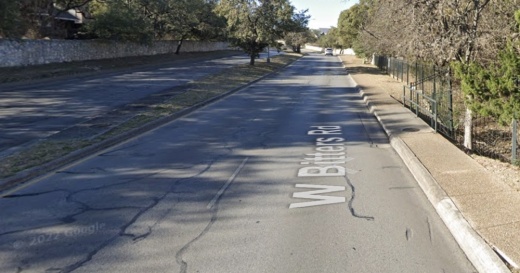San Antonio voters April 25 began casting ballots on the city of San Antonio’s biggest bond yet: a $1.2 billion package that proposes a variety of road, drainage, sidewalk and bridge improvements citywide alongside upgrades to existing public safety and cultural facilities and parks, and support for affordable housing.
The projects are split into six propositions on the ballot, and city officials said no new property tax hike will be needed to fund an approved bond. More than 53% of proposed bond dollars are envisioned to cover high-priority street and drainage issues.
“If approved by voters in the general election, these investments are expected to have a transformative impact throughout District 8 and our city,” District 8 City Council Member Manny Pelaez said in an email blast to constituents.
The council unanimously voted Feb. 10 to call for the bond election, following a three-month bond-planning process that included several public meetings held by five citizen committees.
Here is how the proposed bond breaks down:
- Streets, bridges and sidewalks: $471.5 million
- Drainage and flood control: $169.8 million
- Parks, recreation and open space: $271.9 million
- Libraries and cultural facilities: $58.3 million
- Public safety facilities: $78.2 million
- Affordable housing: $150 million
Many city leaders said they are happy much of the proposed bond concentrates on addressing the basics. The city estimates $6.6 billion in local infrastructure needs, including $2.4 billion in required street, bridge and sidewalk fixes and $3.1 billion in drainage and flood control upgrades.
The city has 4,190 total center line miles, out of which 11%, or 457 miles, are classified as failing by local officials. San Antonio is prioritizing such failing roads by designating $100.5 million within the streets, bridges and sidewalks proposition for those streets.
Additionally, an approved bond would fund 21 planned miles of new linear greenway trails, $68 million in renovations to existing city-owned facilities, $65 million in new construction of city facilities, improvements to 30% of San Antonio’s parks, and development of nine new parks, City Manager Erik Walsh said.
“This is a historic investment for our community. This is really our infrastructure bill,” Walsh said, referencing the $1 trillion Infrastructure Investment and Jobs Act passed by Congress in November.
District 10 Council Member Clayton Perry supported calling the bond election, but he said more money should have been proposed for infrastructure.
“Bond programs only occur every five years. In this 2022-2027 bond program, the streets and drainage categories are proposed to receive the smallest percentage increase from the 2017-2021 bond when compared to other categories,” Perry said.
The bond also contains $150 million to help support the city’s long-term efforts toward developing more affordable and market-rate housing.
If Proposition F were approved, the $150 million will be split among five funding categories: $45 million for rehabilitating and preserving owner-occupied homes; $40 million for rental housing acquisition, improvements and preservation; and $25 million for housing with on-site services designed to aid homeless individuals.
Another $35 million within Proposition F would support rental housing production and acquisition, and another $5 million would support new home construction, the city said.
Local officials and housing advocates said while it imperfect, the 2022 bond is a key chance to assist an estimated 95,000 cost-burdened local households, which spend more than 30% of their income on housing costs, including rent, mortgage and utilities.
Marco Acuna, an organizer for Texas Organizing Project, a grassroots nonprofit that organizes Black and Latino communities in major Texas counties, addressed the council on Feb. 10. Acuna voiced support for Proposition F and prioritizing housing for people making less than 30% of area median income, which is $74,100, according to the U.S. Department of Housing and Urban Development.
“Housing should be treated as a bedrock of a healthy society,” he said.
According to local officials, the projected growth in property tax revenues will enable the city to sell approved new bonds over five years without having to raise the property tax rate of $0.558 per $100 home valuation.
“We’re able to do this based upon our financial ability and in our confidence in that moving forward,” Walsh said.
Early voting is being held 8 a.m.-6 p.m. April 25-29, 8 a.m.-8 p.m. April 30 and May 2-3, and noon-6 p.m. May 1 at multiple sites citywide. Election day polls will be open 7 a.m.-7 p.m. Visit https://www.bexar.org/DocumentCenter/View/4572/Early-Voting-Locations-and-Hours-of-Operation-PDF for polling details.





